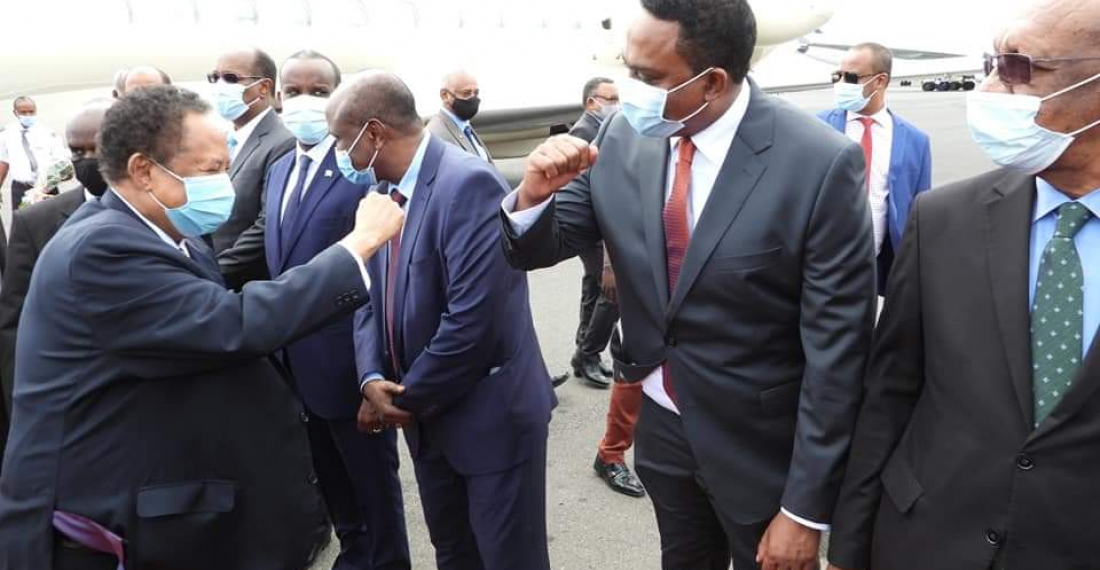The 38th Extraordinary Summit of the Member States of the Intergovernmental Authority on Development (IGAD) commenced today in Djibouti to discuss a number of controversies and urgent issues in the East African region.
The leaders and heads of government of the IGAD Member States and the Chairperson of the African Union Commission, Moussa Faki, arrived in Djibouti to participate in the summit.
The summit will start with opening speeches from Sudanese Prime Minister Abdullah Hamdok, whose country is organizing the current session, President of Djibouti Ismail Omar Gili, and Chairperson of the African Union Commission, Moussa Faki.
IGAD comprises 8 countries: Djibouti, Sudan, South Sudan, Somalia, Kenya, Uganda, Ethiopia and Eritrea.
The atmosphere of disagreements and tensions between the countries of the region, especially between Somalia and Kenya, loomed over the summit in addition to the Sudanese-Ethiopian border dispute regarding the Fashaqa region.
It will also discuss a number of African issues, including the progress of the peace process in South Sudan, Washington's removal of Sudan's from the designation as a "state sponsor of terrorism", and cooperation in combating the Coronavirus pandemic.
IGAD Executive Secretary Warkinh Djibwa said that despite all the differences, they are committed to finding solutions to the outstanding issues during the summit.
For his part, Mohamed Idris Farah, Djibouti's ambassador to the African Union, said that the importance of IGAD stems from it being a regional organization, and it is known that regional organizations on the continent are the ones in charge of trying to find solutions to differences between members. Many are counting on IGAD to find a solution to differences, through its previous successful experiences such as restoring peace in Somalia, ending the fighting in southern Sudan, and supporting a political solution in Sudan.
The authority was established in the eighties of the last century as an economic development agency in East African countries before the security dimension was added to it in the nineties, and its headquarters is in Djibouti.
It works on 3 axes that include achieving food security and protecting the environment, maintaining peace and security and promoting human rights, in addition to economic cooperation and integration.
The Intergovernmental Authority on Development (IGAD) leaders are meeting in Djibouti today at a time when the region has pulled together impressively to tackle the COVID-19 pandemic and a desert locust invasion. And at a time, when the stability of the region is threatened by conflicts, ancient border disputes and a diplomatic stand-off.
In a statement issued in Brussels the EU High Representative for Foreign and Security Policy said that the European Union joins the millions across the region affected by the current crises, in placing their faith in today’s summit. "We support all efforts to encourage dialogue and to silence guns."
As IGAD’s most significant international partner, we also hope that the outcome of today’s meeting will bring the region a step closer to finding a sustainable solution to the ongoing crises, in line with respect for international commitments and, in particular, international humanitarian law. Regional organisations depend on their members’ mutual legal commitments. The solidarity that binds the IGAD Member States together is crucial for future decisive action.







